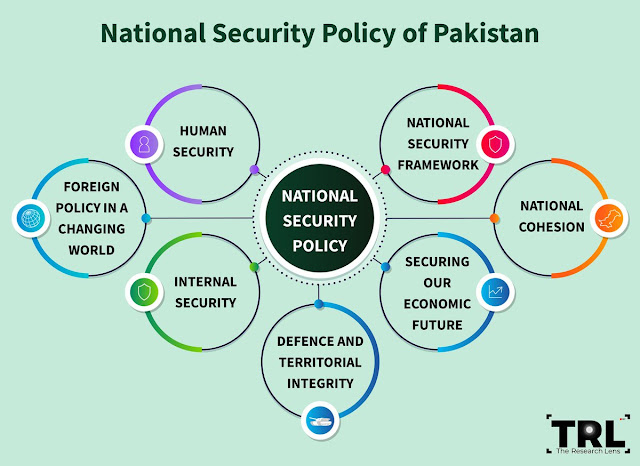Pakistan's National Security Policy mandates regional connectivity.
Pakistan's National Security Policy mandates regional connectivity.
The document acknowledges Pakistan's historic and current geostrategic position in the competition between great powers. However, the collection of geoeconomic dividends is required to make the country's geostrategic location a reality, as it has merely remained a cliché in the past.
Under the NSP, Islamabad desires peace with New Delhi and anticipates New Delhi's reciprocity in terms of regional connectivity and peaceful coexistence.
The decision by India and Pakistan to forego traditional security will likely open the door to regional prosperity and connectivity. From NSP, India, the second-largest energy consumer in the world, stands to reap unprecedented benefits. The only way to gain land access to Central Asia and the Middle East is through Pakistan.
With $31 billion in exports and $80 billion in imports in 2022, Pakistan cannot compete in the modern world. To boost economic growth, it will soon need to diversify its economy and promote regional connectivity. India and Pakistan could increase their bilateral trade from $2 billion to 37 billion dollars, according to a 2018 World Bank report. Stephen Cohen says that one of the five global conflicts that are unlikely to be resolved is the India-Pakistan conflict.
The NSP asserts that CPEC represents the pinnacle of regional connectivity. The actual factors that determine the NSP for relationships within the region are TAPI, CPEC, and the Turkmenistan-Afghanistan-Pakistan-India Pipeline. If people think about the reality of the Kartarpur Corridor under the NSP and think about making it a two-way corridor for economic activities and regional connectivity, their fortunes will change. By the NSP, Islamabad ought to open a brand-new corridor in Sindh, which borders India, so that Indian Muslims can make use of the Sufi shrines there. This would help to foster religious harmony and improve regional connectivity.
Iran, Pakistan's immediate neighbor and a significant player in the region, ought to be connected to the NSP. It is anticipated that the $400 billion strategic agreement that China and Iran will sign in 2021 will alter regional politics. China's $280 billion investment in Iran's energy sector as part of the strategic deal requires Pakistan's route. Under the NSP, Islamabad can soon receive Iran's energy at a concessionary rate as a regional connectivity hub.
Bringing CPEC to Afghanistan would be good for the development of the region. A country with nearly $3 trillion in natural resources could benefit from bringing CPEC to Afghanistan.
Under the NSP, climate diplomacy is meant to try to improve regional connectivity and close the trust gap between countries. In terms of their vulnerability to climate change, India, Pakistan, and Bangladesh are ranked fifth, eighth, and tenth, respectively. The 2022 food crisis had a significant impact on Pakistan, causing losses totaling $33 billion and affecting nearly 33 million people. Despite the devastating effects that climate change has had on India's economy, Mckinsey's report states that "heatwaves translate into a projected 2.5 percent to 4.5 percent, or $150 billion to $250 billion, the risk to the country's gross domestic product."
Elahi will file a lawsuit against the ECP's decision to appoint the Punjab caretaker CM with the Supreme Court.
The South Asian Association for Regional Cooperation (SAARC) hasn't been able to solve problems in the region up until this point. With the assistance of countries in the region, it can be revived as part of the NSP to improve connectivity throughout the region. Due to numerous flaws, the NSP has not produced positive outcomes after a year. Since the Taliban took over Afghanistan, Pakistan has been experiencing a new wave of terrorism and extremism.
In terms of FDI, regional connectivity, and prosperity, this puts the NSP in jeopardy. Boosting the struggling economy, preserving political stability, ending terrorism, accelerating CPEC projects, and avoiding criticism of India are the most crucial aspects of the NSP's success.





No comments